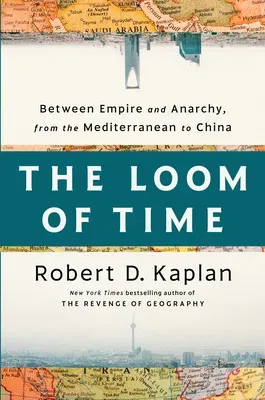A stunning exploration of the Greater Middle East, where lasting
stability has often seemed just out of reach but may hold the key to the
shifting world order of the twenty-first century
The Greater Middle East, which Robert D. Kaplan defines as the vast
region between the Mediterranean and China, encompassing much of the
Arab world, parts of northern Africa, and Asia, existed for millennia as
the crossroads of empire: Macedonian, Roman, Persian, Mongol, Ottoman,
British, Soviet, American. But with the dissolution of empires in the
twentieth century, postcolonial states have endeavored to maintain
stability in the face of power struggles between factions, leadership
vacuums, and the arbitrary borders drawn by exiting imperial rulers with
little regard for geography or political groups on the ground. In the
Loom of Time, Kaplan explores this broad, fraught space through
reporting and travel writing to reveal deeper truths about the impacts
of history on the present and how the requirements of stability over
anarchy are often in conflict with the ideals of democratic governance.
In The Loom of Time, Kaplan makes the case for realism as an approach
to the Greater Middle East. Just as Western attempts at democracy
promotion across the Middle East have failed, a new form of economic
imperialism is emerging today as China's ambitions fall squarely within
the region as the key link between Europe and East Asia. As in the past,
the Greater Middle East will be a register of future great power
struggles across the globe. And like in the past, thousands of years of
imperial rule will continue to cast a long shadow on politics as it is
practiced today.
To piece together the history of this remarkable place and what it
suggests for the future, Kaplan weaves together classic texts, immersive
travel writing, and a great variety of voices from every country that
all compel the reader to look closely at the realities on the ground and
to prioritize these facts over ideals on paper. The Loom of Time is a
challenging, clear-eyed book that promises to reframe our vision of the
global twenty-first century.

